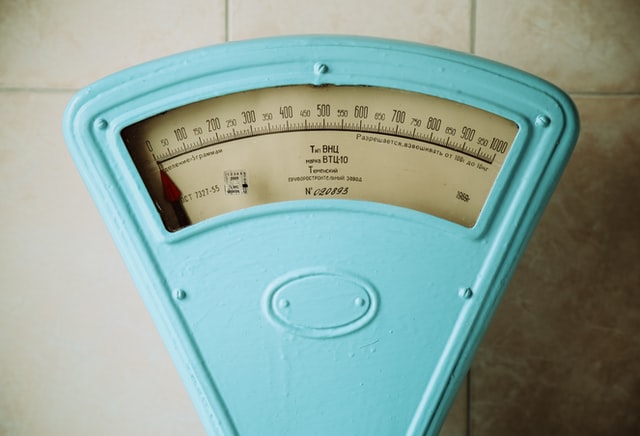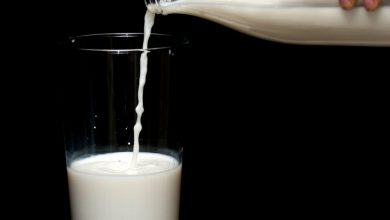
How to Lose Weight and Keep It Off Long-Term
When you’ve worked hard to lose weight, it can be extremely frustrating when you gain it back again. While the right diet plans can prove successful in helping you achieve your goals short-term, most diets used for weight loss are not meant to be continued long-term. In the end, you may be left wondering how to ensure your weight loss remains.
A common claim with many diets is that you can “lose weight fast and keep it off.” The problem with these claims is they are mainly based on the need for sticking to that particular diet. Realistically, most people won’t be able to stay on a weight loss diet for the long-term. Many diets are also not healthy to continue following for longer than needed due to your body’s nutritional needs.
So what is the best way to lose weight and keep it off? Let’s start with some of the most popular weight loss diet plans, and then we’ll give you some useful tips and tricks to help ensure you keep the weight off successfully.

Popular Diet Methods
There are a ton of diet options out there. It seems that a new diet is being advertised every day, which can be overwhelming when you’re trying to decide which method is right for you. Below, we’ve listed the details of some popular diet options to help make your decision easier:
- Low-Carb – Low-carb diets can come in many forms. At their core, low-carb diets consist of getting most calories through foods with little-to-no carbs or starches. The keto diet is a popular example of a low-carb diet in which the dieter eliminates carbs for the most part and concentrates on eating more healthy fats and proteins.
- Low-Fat – Through low-fat dieting, dieters will focus on eating foods that are more lean and high in protein. Low-fat diets are excellent for those who have heart problems, high cholesterol, or high blood pressure.
- Intermittent Fasting – Intermittent fasting consists of having regularly scheduled time each day or each week in which you do not consume any calories at all. This dieting method has been around for a long time but has become increasingly popular as of late due to its other health benefits.
- Low-Calorie – One of the most popular methods of dieting is through calorie control. Essentially, by eating fewer calories than you’re burning off on a daily basis, you can potentially lose weight. This type of diet can work exceptionally well for those who are regularly active or on a fitness plan.

How to Keep the Weight Off Long-Term
No matter which diet is chosen for weight loss, many people will be faced with how to keep off the weight after stopping the diet. It’s essential to have a proactive plan in place to maintain your weight loss for the long-term. Below, we’ve listed some tips and tricks for keeping the weight off successfully:
- Don’t Skip Meals – Trying to maintain or induce weight loss through the act of skipping meals can be counterproductive. In fact, your body can experience something called adaptive thermogenesis if you don’t consume enough calories. When adaptive thermogenesis occurs, your body actively slows down the rate at which you’re burning calories in order to conserve energy. When you don’t use the energy stored, you can experience weight gain as a result.
- Have an Exercise Plan – Exercise is essential for maintaining your health, but it can also help you keep the pounds away. Exercising can balance the calories you’ve consumed by burning them off for energy.
- Monitor Your Weight – While it’s certainly not recommended that you weigh yourself on a constant basis, it is crucial that you maintain awareness of your weight to ensure you stay on the right track. By monitoring your weight, you can make adjustments as needed more easily.
- Reduce Stress – Stress can directly contribute to weight gain; this is because increased stress can lead to increased levels of the cortisol hormone, which has been linked to higher levels of fat.
- Eat a Balanced Diet – Eating a balanced diet full of fresh fruits and vegetables, lean proteins, and healthy fats can help you control your appetite and ensure your body is consuming healthy doses of calories. Try to steer clear of processed foods and foods that are high in sugar.
- Eat A Lot of Protein – Protein is excellent for curbing your appetite and helping you feel fuller for longer. Try incorporating plenty of nuts, lean meat and poultry, cheese, eggs, and protein-rich vegetables into your daily diet.
- Eat Mindfully – Reducing distractions, slowing down, and focusing on the act of eating during the activity can help you stay on top of portion control. Mindful eating can allow you to make better decisions with your eating because you’re paying more attention to what and how much you consume.
- Track Calories – By tracking calories, you can ensure that the amount of food you’re consuming isn’t exceeding how many calories you’re burning throughout the day.
- Get Your Rest – Sleep and rest have been shown to impact weight gain directly. When your body isn’t getting enough rest, you can potentially experience more hunger cravings than usual and slow down of metabolism.
- Drink Plenty of Water – Water can help you feel full throughout the day. Instead of reaching for a snack or increasing your portion size, try consuming a glass of water first; you may find that you no longer have a hunger craving. If you’re still hungry afterward, consume a healthy snack or meal.
- Satisfy Your Cravings – Whether dieting or not, when cravings hit, it’s important that you don’t ignore them. Try giving in to your cravings in small doses here and there. You can also try to choose healthy substitutions for your cravings. For instance, if you’re craving a milkshake, try opting for a healthy fruit smoothie instead.



